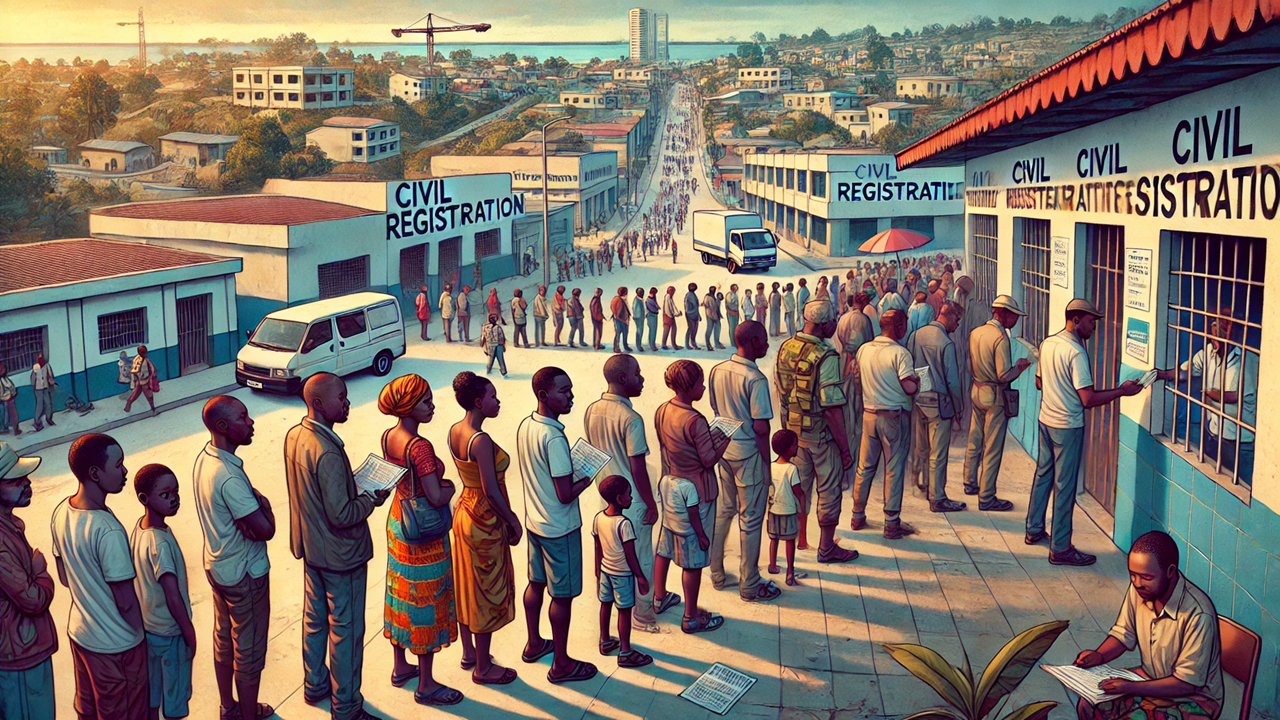Unlocking Identities: The Struggle and Promise of Angola’s Identification System
This article discusses the findings of the World Bank report “ID4D Diagnostic of ID Systems in Angola,” which examines the challenges and prospects for reform in Angola's identification system. It highlights the system's colonial roots, legal and infrastructural barriers, and the potential for technological improvements, including the introduction of a digital ID. The article emphasizes the importance of these reforms in promoting inclusion and access to services for all Angolans.

In Angola, identity is more than just a name on a card—it’s a key to opportunity, participation, and access to basic services. However, a recent World Bank report titled “ID4D Diagnostic of ID Systems in Angola” reveals that historical legacies, infrastructural inadequacies, and legal hurdles plague the country’s identification system. As Angola strives to modernize, the challenges and reforms highlighted in the report could define the future of its citizens.
A System Rooted in the Past
Angola’s identification system has deep roots in its colonial past, with much of its legal framework dating back to the Portuguese era. The 27-year civil war that followed independence left a trail of destruction, decimating civil registration offices and scattering populations. This history has left Angola with a fragmented and inconsistent system, where laws are often misinterpreted or unevenly applied across the country.
The report highlights that only 77% of Angolan citizens have full birth registration, and just 46% hold a national ID card. These figures reveal a critical gap that leaves millions without the necessary documentation to access essential services like education, healthcare, and financial services. The situation is particularly dire for rural communities, where access to registration services is limited, and the journey to the nearest office can be long and costly.
Barriers to Identity: Legal and Infrastructural Challenges
One of the most significant barriers to improving Angola’s identification coverage is its outdated legal framework. The requirement for parents to present their ID cards when registering a child’s birth perpetuates a cycle of undocumented generations. This legal hurdle, combined with the lack of a centralized civil registry, makes it difficult for many citizens to obtain or update their identification.
In addition to legal challenges, the report points to severe infrastructural deficiencies. Many registration offices are still paper-based, and the country’s ICT infrastructure is underdeveloped, particularly in rural areas. These limitations make it nearly impossible to expand ID services effectively and equitably across the nation.
The government’s capacity to provide these services is also stretched thin. Although there have been efforts to modernize, the services remain concentrated in urban centers, leaving vast rural areas underserved. The introduction of mobile registration units has provided some relief, but these efforts are not enough to meet the needs of Angola’s dispersed and growing population.
Prospects for Reform: A Path to Digital Identity
Despite these challenges, the World Bank report outlines a path forward, emphasizing the need for comprehensive reforms and the adoption of modern technologies. A key recommendation is to update and simplify the Civil Registration Code to remove barriers to access. By doing so, Angola could break the cycle of undocumented citizens and increase the overall coverage of its identification system.
Technological improvements are also crucial. The report suggests expanding the computerized civil registration system and improving interoperability between databases. This would allow for better data sharing and could lead to the establishment of a centralized civil registry—an essential step in ensuring that all citizens are accounted for.
Perhaps the most promising development is the government’s plan to introduce a digital ID system. This digital layer would serve as an authentication tool for accessing online services and could address many of the challenges currently faced by the foundational ID system. The digital ID would be categorized based on the level of assurance required for different services, making it a flexible and secure solution for the diverse needs of Angolans.
Looking Ahead: A Future of Inclusion and Access
The road ahead for Angola’s identification system is not without obstacles, but the recommendations provided in the World Bank’s report offer a blueprint for meaningful change. By harmonizing its legal framework, improving institutional coordination, and leveraging technology, Angola has the opportunity to build a more inclusive and accessible identification system.
The introduction of a digital ID could be a game-changer, particularly for vulnerable populations who have been historically excluded. As Angola continues its journey toward modernization, ensuring that every citizen has access to a reliable and secure form of identification will be crucial in achieving broader goals of social and economic development.
The challenges are significant, but with the right reforms, Angola can unlock the full potential of its people, providing them with the tools they need to participate fully in the country’s future.
- FIRST PUBLISHED IN:
- Devdiscourse
ALSO READ
Manipur Takes Leap with ADB and World Bank Projects
World Bank Launches 2025 with AUD 1.75 Billion Sustainable Development Bond in Kangaroo Market
World Bank Group’s 2024 Validation Report: Key Insights on Progress and Challenges
World Bank and IFC: A Decade of Driving Gender Equality Forward
World Bank’s Climate Report: Driving People-Centric Action for Resilience










